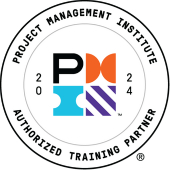PME is presently writing new curriculum for the recently released Guide to the Project Management Body of Knowledge (PMBOK® Guide – Sixth Edition). This is quite a challenge given the 6th edition is considerably different from the 5th edition. PMI has done a great job of defining the roles that project managers play and identifying the knowledge areas that we need to perform in our jobs. For starters, the 6th edition justifies the need for the Talent Triangle that mandates that project managers must be educated in technical project management, leadership, and strategic and business management. In addition, Agile practices will be a major addition to the new PMBOK. An overview of the major changes is defined below:
– The first 3 chapters have been totally rewritten to highlight project management’s evolving role in organizational change and business value creation.
– Each of the 10 Knowledge areas will contain new topics such as Key Concepts, Trends and Emerging Practices, Tailoring Considerations, and Approaches in Agile, Iterative and Adaptive Environments. These sections stress that project management practices must evolve and be flexible along with the project itself.
– Agile is discussed in all 10 Knowledge Areas and an Agile Practice Guide accompanies the new PMBOK® Guide – Sixth Edition.
– The project manager’s role as a leader, strategic thinker, and business expert has been expanded emphasizing the need for additional education in leadership, technical project management, and strategic business management for all PMP certificate holders.
– The new primary input into Develop Project Charter are Business Documents which include: Business Case: A documented economic feasibility study used to establish validity of the benefits of a selected component lacking sufficient definition and that is used as a basis for the authorization of further project management activities.
– Project Integration Management has a new process called Manage Project Knowledge that formally documents existing project knowledge and creates new knowledge to achieve the project’s objectives and contribute to organizational learning. The primary output is a lessons learned register that can be accessed throughout the project and for future projects.
– Project Human Resource Management has been renamed Project Resource Management to include more than just human resource management but include the management of both physical and human resources.
– Project Time Management has been renamed Project Schedule Management.
– Close Procurements has been deleted because studies have shown that project managers do not typically close contracts.
PME is recommending that all PMP candidates sit in our bootcamp and take the PMBOK® 5th edition test before March 26. After this date PMI will only be offering PMBOK® 6th Edition exams. Click here to enroll and review the course agenda.
PMBOK is a registered mark of the Project Management Institute

